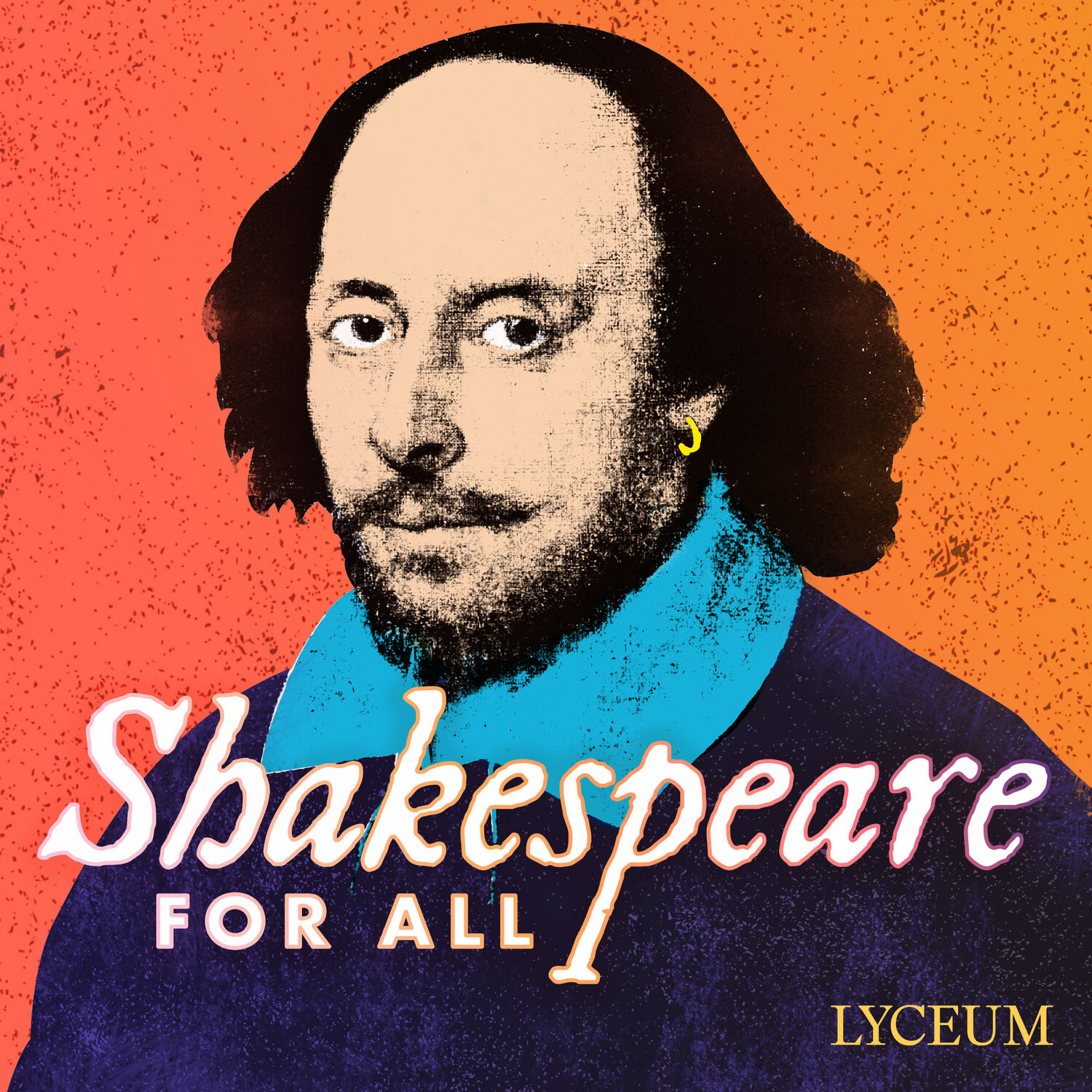Henry IV Part 1
“REDEEMING TIME”
What You'll Learn
The story of Henry IV Part 1 and the key historical context behind the play
How Prince Hal of Henry IV Part 1 transforms himself into the leader of Henry V
Where it is, in this play, that history unfolds and what it might mean to redeem history
Course Outline
Episode 1: Henry IV Part 1 - the Story and the Context
Episode 2: Henry IV Part 1 - the Characters
Episode 3: Henry IV Part 1 - the Language
Works Consulted for this Course
Garber, Marjorie B. Shakespeare After All. New York: Pantheon Books, 2004.
Howard, Jean E. “Introduction,” Henry IV Part 1, in Shakespeare, William. The Norton Shakespeare. Edited by Stephen Greenblatt, Walter Cohen, Suzanne Gossett, Jean E. Howard, Katharine Eisaman Maus and Gordon McMullan. 3rd ed. New York: W. W. Norton & Company, 2016.
Leggatt, Alexander. ““A Modern Perspective: Henry IV, Part 1.” Folger Shakespeare Library. <https://shakespeare.folger.edu/shakespeares-works/henry-iv-part-1/henry-iv-part-1-a-modern-perspective/>
Shakespeare, William. Henry IV Part 1. Edited by David Scott Kastan. The Arden Shakespeare. London: Thomson Learning, 2002.
Smith, Emma. This Is Shakespeare. New York: Pantheon Books, 2020.
Henry IV Part 1 has long been one of Shakespeare’s most beloved history plays. In the 1590s, Shakespeare wrote a series of eight plays based on English chronicle history. This play is named for Henry IV, who deposed Richard II to become king in 1399. But the most captivating characters for many readers prove to be Sir John Falstaff and Henry IV’s son Hal – the prince who would go on to become the legendary Henry V. In this course, you’ll learn the story of Henry IV Part 1, hear the play’s key speeches performed and analyzed by world-class Shakespearean actors and literary scholars, and watch how Hal navigates his historical destiny and forges his personal identity in a process he calls “redeeming time.”
In Part 1, you’ll be guided through a detailed account of the story with commentary by Ewan Fernie, Chair, Professor and Fellow of the Shakespeare Institute and Director of the ‘Everything to Everybody’ Project. You’ll learn the historical context behind the play and encounter the extraordinary places and people - from the royal court to the taverns of London, from the honor-driven soldier Hotspur to the unforgettable rogue Falstaff - who shape Hal’s future and offer a panoramic view of English society, within and beyond the official annals of history. This summary is told using the language of the play itself, placing key quotations in context to help you understand where these lines come from and what they mean.
Part 2 delves further into Hal’s intention to “redeem[ the] time.” It examines the competing value systems that Henry IV, Hotspur, and Falstaff represent, where their strengths lie and where they reveal unexpected limitations, and shows how Hal makes use of all these people – sometimes lovingly, sometimes ruthlessly - to shape himself as a leader. It concludes by asking what it might mean for us, as 21st-century audience members, to redeem the time in which we live.
Part 3 features close-readings of seven of the play’s most significant scenes and speeches. We trace the arc of Hal’s transformation throughout the play, from his first intention to “redeem[] time” to the thwarted realization of his intentions in the play’s climactic battle scene. We also share key moments with Henry IV, Falstaff, Hotspur, and Hotspur’s wife.
You can hear the third episode of this course below. For free access to the full course, and immediate access to all of Season Two, visit the “Shakespeare For All” course page on Himalaya Learning or download the Himalaya app from the Mac App Store or from Google Play. Use the promo code BARD for 30 days free.
Speeches and Performers
Hal, Act 1, “I know you all …” (Scott Ripley)
Lady Percy, Act 2, “O my good lord, why are you thus alone? …” (Kimisha Lewis)
Falstaff and Hal, Act 2, “But to say I know more harm in him …” (Scott Ripley)
King Henry IV, Act 3, “I know not whether God will have it so …” (Julian Glover)
Hal, Act 3, “Do not think so. You shall not find it so …” (Keith Hamilton Cobb)
Hotspur, Hal, and Falstaff, Act 5, “O Harry, thou hast robbed me of my youth …” (Scott Ripley)
King Henry IV, Henry IV Part 2, Act 3, “How many thousands of my poorest subjects …” (Julian Glover)
Course Instructor
Ewan Fernie
Chair, Professor and Fellow of the Shakespeare Institute, Culture Lead of the College of Arts and Law, University of Birmingham, and Director of the ‘Everything to Everybody’ Project
Ewan Fernie is Chair, Professor and Fellow of the Shakespeare Institute, and Culture Lead of the College of Arts and Law, University of Birmingham. He is Director of the major lottery-funded ‘Everything to Everybody’ Project, which aims to revive and renew the world’s first great Shakespeare library and Birmingham’s broader reputation as a trailblazer for publicly owned culture. Fernie’s books include: Shame in Shakespeare; The Demonic: Literature and Experience; Shakespeare for Freedom; (with Simon Palfrey) ‘Macbeth, Macbeth’; Spiritual Shakespeares; (with Ramona Wray, Mark Burnett and Clare McManus) Reconceiving the Renaissance; Redcrosse: Remaking Religious Poetry for Today’s World; (with Tobias Döring) Thomas Mann and Shakespeare: Something Rich and Strange; and (with Paul Edmondson) New Places: Shakespeare and Civic Creativity. For many years, he co-edited the groundbreaking ‘Shakespeare Now!’ series with Palfrey. He has held visiting positions at Eton College, the Centre for Advanced Study at the University of Munich, and at the University of Queensland (twice). In 2018, he hosted “Radical Mischief: Inviting Experiment in Theatre, Thought and Politics” at The Other Place with the Royal Shakespeare Company’s Deputy Director, Erica Whyman. He has recently written a play called Marina with Katharine Craik, and he is leading an additional funded project called “Serious About Comedy” with Sean Foley, the Artistic Director of Birmingham REP. The book he is currently writing is titled The Dirty History of Hope.



